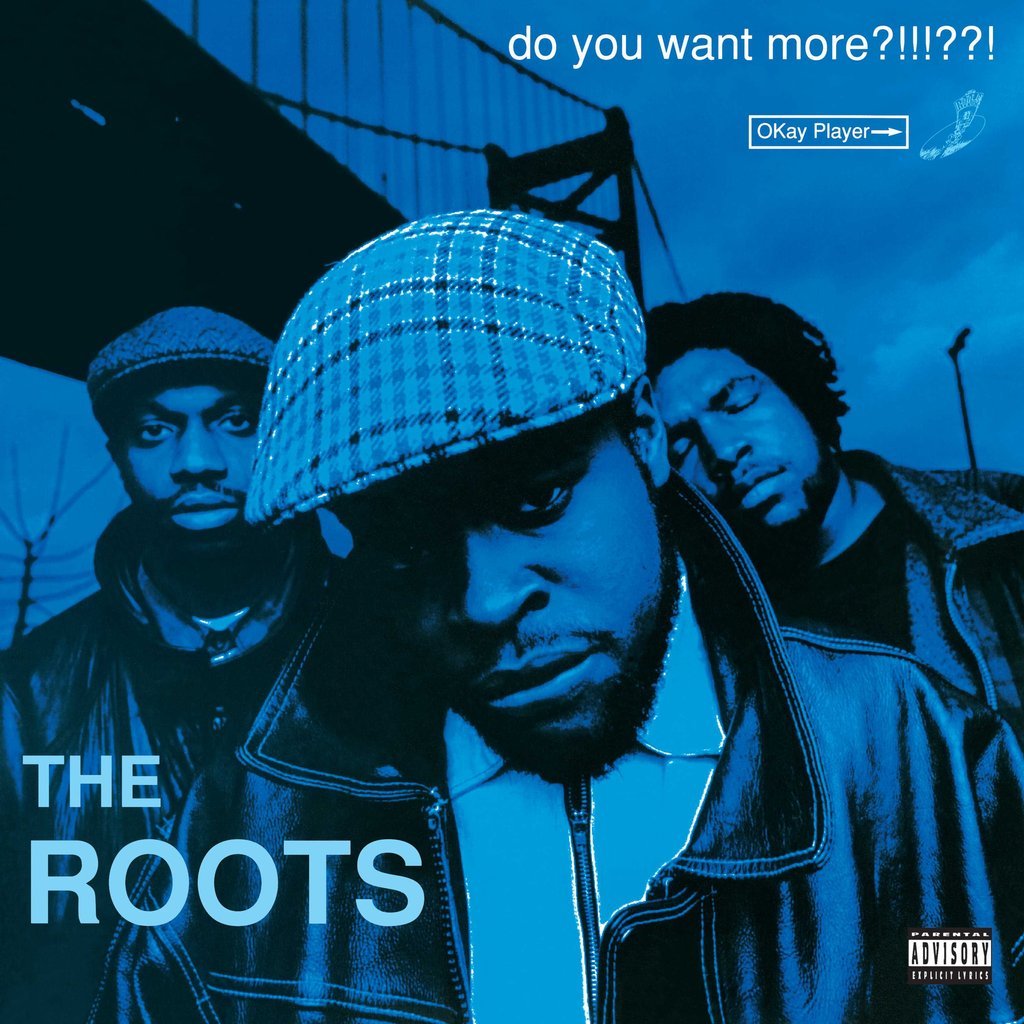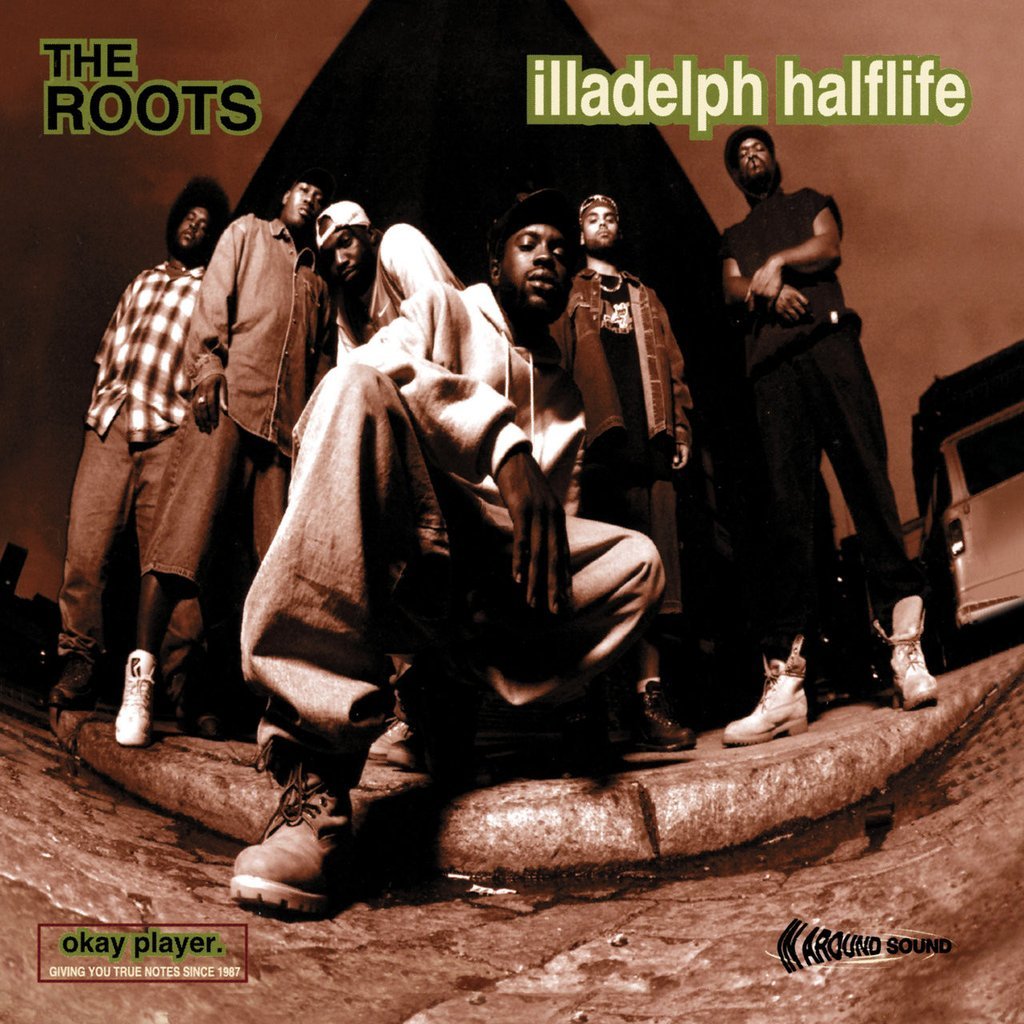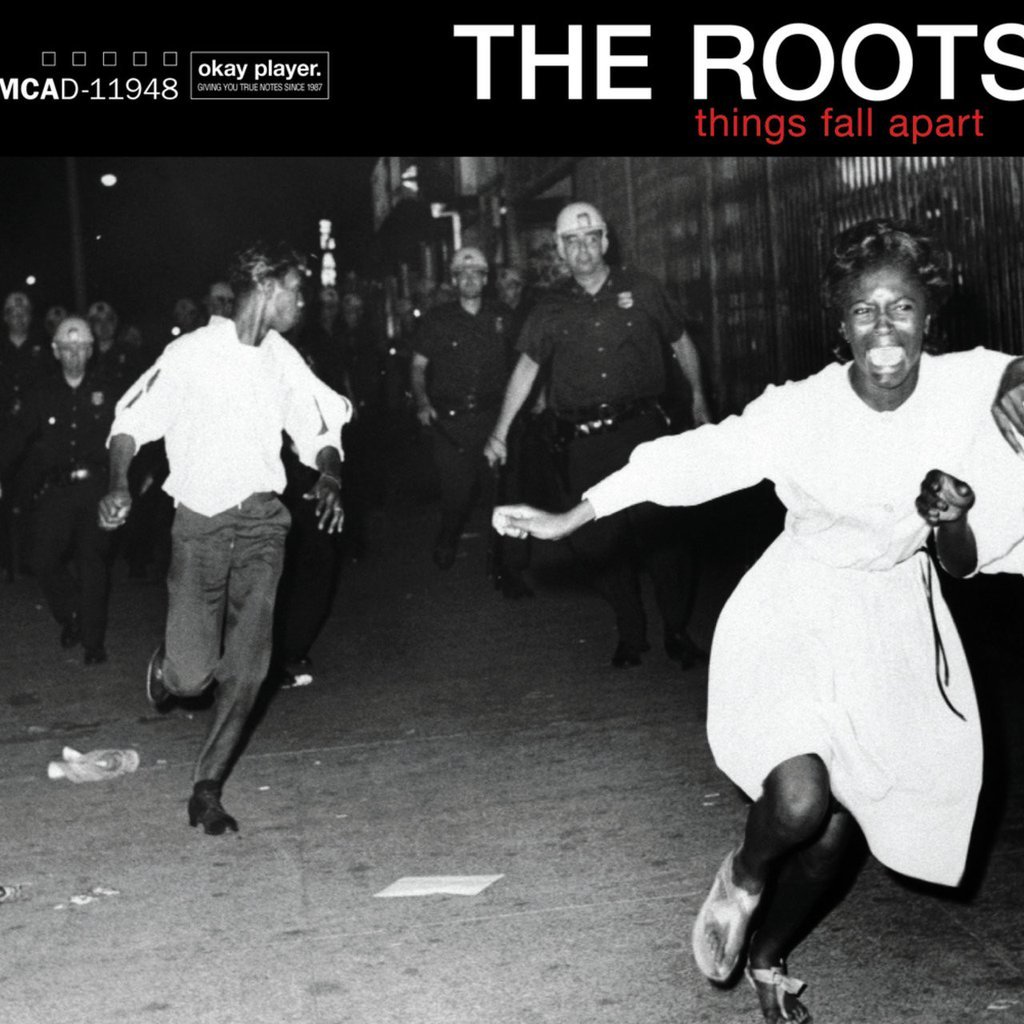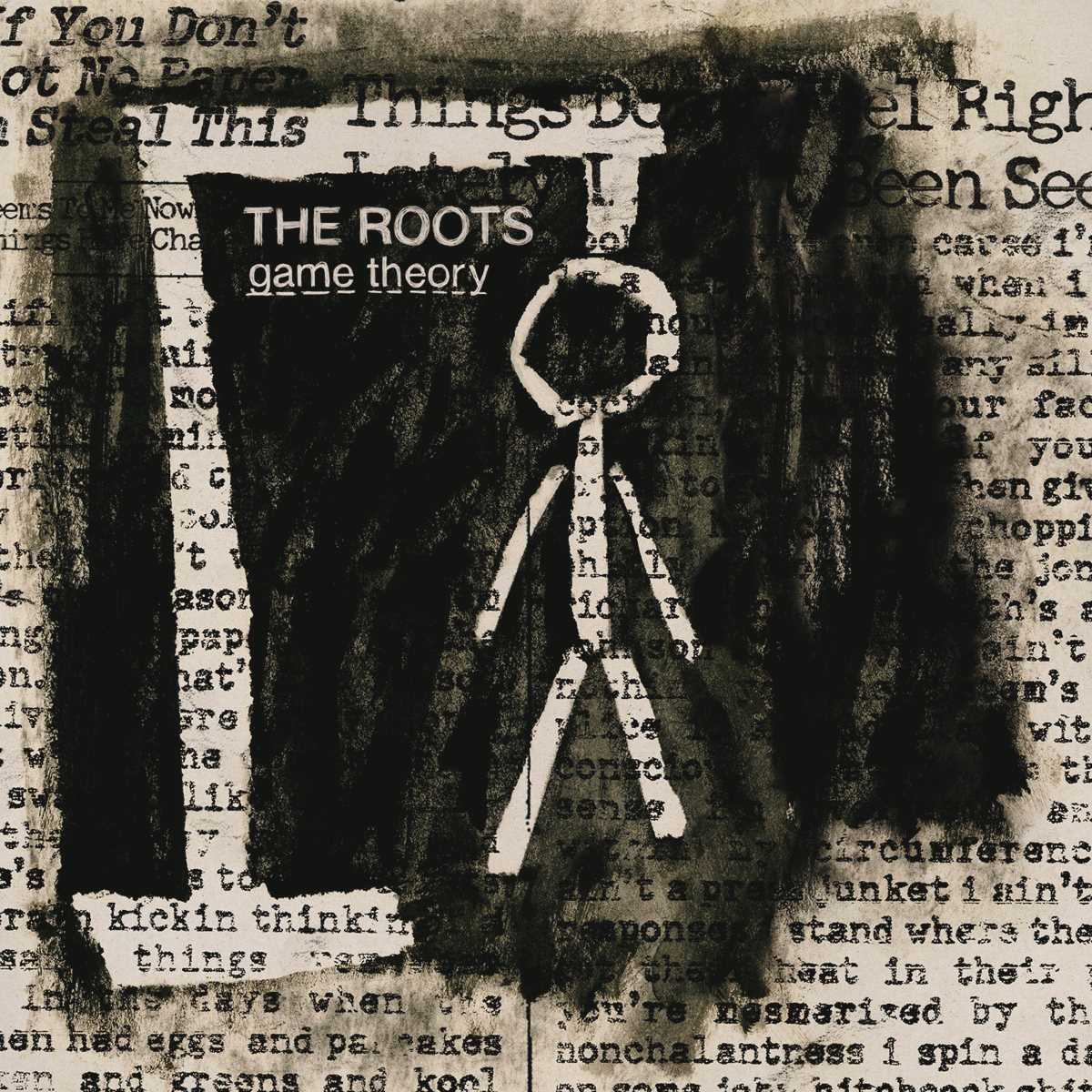Happy 15th Anniversary to The Roots’ eighth studio album Rising Down, originally released April 28, 2008.
During their three decades of existence, The Roots have established that they are incapable of making a boring album. I’ve written tributes for a good deal of their catalogue, and have found that damn near all of it merits thousands of words of in-depth analysis and track-by-track breakdowns. Each entry is unique, both musically and lyrically, as they traverse all sorts of challenging ground. Even the misstep that they released falters in an interesting way.
Rising Down, released 15 years ago, is no different. The group’s eighth full-length teems with grim atmosphere and stunning and complex lyrical performances. Not only did it sound different than The Roots’ previous releases, but it was also different than just about every hip-hop album out on the market at the time. It’s not particularly accessible, but still has a lot on its mind, and exists on its own distinctive island. As Ahmir “Questlove” Thompson wrote in his 2013 memoir Mo’ Meta Blues: The World According to Questlove, it was one of their most “consistent” and “unified” releases.
Rising Down was a product of The Roots’ most prolific period. This era coincided with the crew signing to Def Jam Records, then under the guidance of long-time friend Jay-Z. Over a roughly five-and-a-half-year period, the group put out four different albums. Rising Down is the second of this quartet. It’s one of the stronger entries in The Roots’ discography, and certainly comparable with Game Theory (2006), the group’s first effort on the Def Jam imprint.
In his memoir, Questlove wrote that Rising Down was developed in response to Barack Obama’s ascendence, as he was in the midst of his journey to be elected as the President of the United States. Questlove wrote that during this period, the group was approached by John Legend, who encouraged them to record “an uplifting record that would sum up all of the promise of America , and how an Obama presidency might crystalize that promise.” That idea eventually became Wake Up (2010), a collaboration with Legend featuring a collection of covers of great 1960s and 1970s soul music.
The Roots went in a much different direction with Rising Down, which was their darkest and most brooding album to that point. Rather than being celebratory, Rising Down casts an ominous shadow. As Quest wrote, it’s a reaction to Obama’s rise, and a rather prescient one at that, since the album dropped more than half a year before the man was elected. It reflected the ugly current of bile and outright racism expressed by an increasingly angry segment of the United States population, feeling threatened by the rise of a Black man to the highest office in the United States. Eight years later, this backlash would manifest itself in Donald Trump becoming president. Four years after that, it would lead to the January 6th riots in the nation’s capital.
Rising Down’s title is adapted from William T. Vollman’s Rising Up and Rising Down: Some Thoughts on Violence, Freedom and Urgent Means, a seven-volume essay on the study of violence. Much like this collection, violence of all sorts permeates the album. And much like the collection, Rising Down’s execution can be literary in nature. The album occasionally seems to be in conversation with itself, providing contrasting points with counterpoints to the group’s worldview. The Roots might be worried about the fate of the world, but they do not wallow in misery throughout the project.
Watch the Official Videos:
Promotion of Rising Down got off to a weird start, especially with the release of the single, “Birthday Girl.” The song, which examines the perils of relationships with younger women and features the vocal talent of Fall Out Boy’s Patrick Stump, seemed targeted towards pushing the crew in the direction of major radio and video play.
However, weeks before Rising Down’s release, Questlove announced that the song was going to be dropped from the project, and would only be available as an iTunes bonus track, back when groups did that sort of thing. In an interview with Billboard, Quest asserted that the decision came after the crew realized that “Birthday Girl” didn’t fit in anywhere on the album. Not as an opening track. Not as a closing track. Not as an “intermission” between the album’s two halves. Not as a hidden bonus track. Despite the song not making the cut, the group shot a “viral” video for the song, prominently featuring adult film star Sasha Grey.
Quest had a point: on a project as incendiary and despairing as Rising Down, the light and poppy “Birthday Girl” would have been completely out of place. The project’s ethos is better represented by its title track. It’s a severe endeavor, as lead emcee Tariq “Black Thought” Trotter is joined by Mos Def and Styles P of The Lox. As Quest wrote in Mo’ Meta Blues, it covers “prescription drug addiction, the way the media distorts the news, the risks of technology, and the financial crisis.” With his verse, Black Thought describes a planet “spinning off of its axis” and wracked with environmental disasters. Meanwhile, he struggles to make it through the day, rapping, “Yo, I don’t want to floss; I done lost my passion / And I ain't trying to climb. Yo, I lost my traction / They making me break, my contents under pressure, do not shake / I'm working while the boss relaxing.”
The melancholy “Singing Man” also presents a rather bleak outlook on the state of the world, focusing on the role of individual misery as the acting agent of chaos and death. On his opening verse, increasingly frequent Roots collaborator Greg Porn raps from the perspective of Seung-Hui Cho, a Virginia Tech student who killed 32 during a shooting rampage on the college’s campus, conveying what he imagines to be the disturbing inner-dialogue inside Cho’s head. Black Thought examines the tragic existence of 13-year-old kids turned soldiers in countries like Liberia. He describes how these youths are drafted into deadly service by power-hungry warlords, strung out on drugs, and forced to “walk like a corpse … killing cause he feel he got nothing to live for.”
Other tracks are defiant. Black Thought is joined by Dice Raw and Greg Porn on “I Will Not Apologize,” as all three explain how working to survive in a world where the odds are stack against them is a triumph in itself. Producer Rich Nichols, the group’s longtime manager, helps guide one the group’s most interesting musical backdrop on Rising Down. The track is seemingly dub influenced, with a sturdy bassline as its spine, complemented by filtered horns and piercing keyboard work.
Amidst the heavy themes, the crew does take some time to display their lyrical skills. However, the tone of these tracks matches the rest of the album: raw and confrontational. On “Get Busy,” Black Thought is joined by Dice Raw and Peedi Peedi, as well as DJ Jazzy Jeff. Jeff puts on a dizzying display of his turntable acumen, flexing his skills over layers of macabre keys. Black Thought, “part Melle Mel, part Van Halen,” lends his verse to portray the often unforgiving reality of growing up in South Philly, announcing, “My city ain't nothing like yours, slipping into darkness like War.”
Even amongst the hard-hitting material on Rising Down and throughout the Roots’ existence, “75 Bars” stands out. Over 75 bars (of course), Black Thought gives the most commanding performance of his career, spraying lyrics with the speed and power of a gatling gun, but infusing the song with remarkable precision, as every verbal bullet hits its target. Thought delivers some of the most memorable and evocative boasts ever recorded, snarling, “I’m in the street with a shield and spear, n***a / I’m with your girl with her heels in the airs, n***a.” Later he proclaims, “Y’all still a lightyear from the level I’m on / Just a pawn stepping right into the head of the storm.”
In the midst of Black Thought’s intense barrage, the band itself keep pace, with Questlove delivering a chest rattling performance on the drums, and Kamal playing what is in effect a sped-up keyboard-driven dirge. The components each come together perfectly to make “75 Bars” one of the best songs in The Roots’ arsenal.
Enjoying this article? Click/tap on the album covers to explore more about The Roots:
Rising Down features arguably the largest number of guest emcees to ever appear on a Roots album. The Roots roster of emcees had been growing over the years, going from Black Thought, Malik B, and the occasional Dice Raw verse, to the increasing appearance of rappers like the aforementioned Greg Porn, Truck North, and Peedi Crack. On this project, the group also makes use of a bevy of talented artists, and not just those who often frequent The Roots orbit.
One of these emcees is Saigon, a Brooklyn-born emcee considered one of hip-hop’s most promising prospects in the mid to late 2000s. Under the tutelage of producer Just Blaze, he was working to release his debut album, The Greatest Story Never Told. Though Saigon ended up releasing some entertaining material, he rarely sounds as inspired as he does here on “Criminal.” Along with Black Thought and Truck North, he works to convey the criminal mindset, struggling to survive, seemingly driven to illegal activity by forces beyond his control. All three emcees wade through the busy guitar-driven groove, with Saigon rapping, “Put emphasis on hitting my nemesis in high percentages / Crooked ass cops is the reason for my belligerence.”
Rising Down features what would become the last appearances by the late Malik B on a Roots album. The talented emcee had been absent from the group’s projects since Things Fall Apart (1999), and Black Thought dedicated “Water” to his partner’s struggle with substance abuse. He rejoined the fold for Game Theory, delivering verses on three different tracks, and appears on a pair of others on Rising Down. He may have passed over a decade later, in 2020, but he ended his Roots career sounding as determined as ever.
Malik B graces two of the most hopeless tracks on Rising Down. The pulsing keyboards played by Kamal and Questlove’s pounding drum track create claustrophobic chaos throughout “I Can’t Help It.” Though Malik’s lead-off performance is strong, Greg Porn gives the performance of his career, channeling the pain that consumes him. “My life is on a flight that's going down,” he raps. “My mother had an abortion for the wrong child.”
“Lost Desire” echoes themes expressed earlier in the album, as Malik, Talib Kweli, and Black Thought lay plain how the poverty and desperation in inner-city neighborhoods can grind down its residents, sapping their will to live. “The seasons are done, and reasons are none,” Malik raps. “People dying, bullets flying cause they squeezing for fun.”
“The Show” steers Rising Down towards a more positive conclusion, as Black Thought and Common rap about their commitment to the hip-hop craft. Both explain how in a fractured world, they can still use their music to inspire others. “The life I chose, more of a mission,” Black Thought raps. “I make a crowd convulse and act on impulse and intuition / I’ve seen the future, listen, believe the superstition / I keep spitting ’til it's a truce or crucifixion.”
The album ends with “Rising Up,” a relatively upbeat counterpoint to the album-opening title track. It sports a Go-Go influenced groove, with its distinctive drumming and percussion. In keeping with the Go-Go sound, Black Thought is joined by Washington DC native and then-on-the-rise emcee Wale. The song is celebratory, with Black Thought and Wale proudly boasting about their abilities to provide an alternative to the staleness of commercial hip-hop. It’s a strong palate-cleansing final statement to an album where The Roots have spent much of the real estate plumbing the depths of humanity’s malaise. Black Thought gives a spirited performance on his first verse, rapping, “To all the frauds stop faking, relax, and to the broads if you caking then clap / Then shake it without breaking your back / I know the world been waiting for that, you been aching for that / ’Cause what they playing on the station is wack.”
Rising Down is a potent statement and very much ahead of its time in terms of subject matter. Much of the dire circumstances that they foretold on this project came to pass. However, the faint strains of optimism also proved prophetic, as this country continues to find ways to dig itself out of the abyss it dug for itself. The Roots would push forward after this album, never repeating themselves, and never being boring.
Listen:





